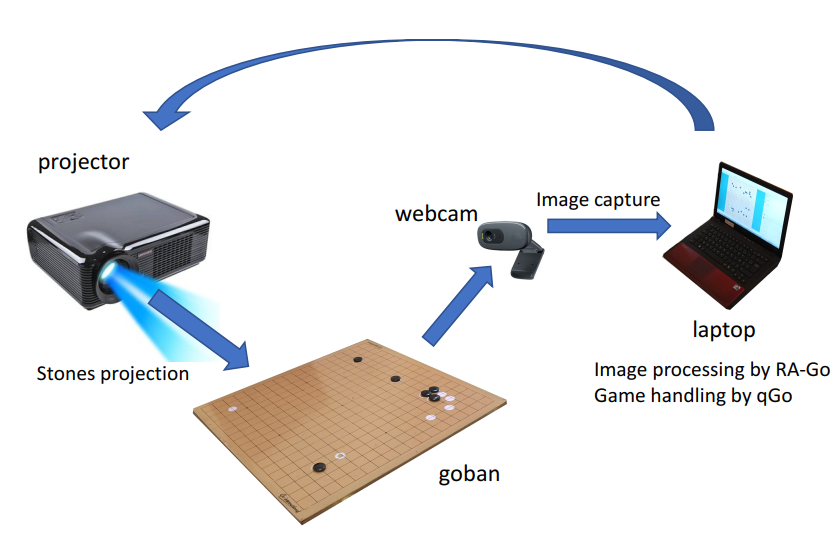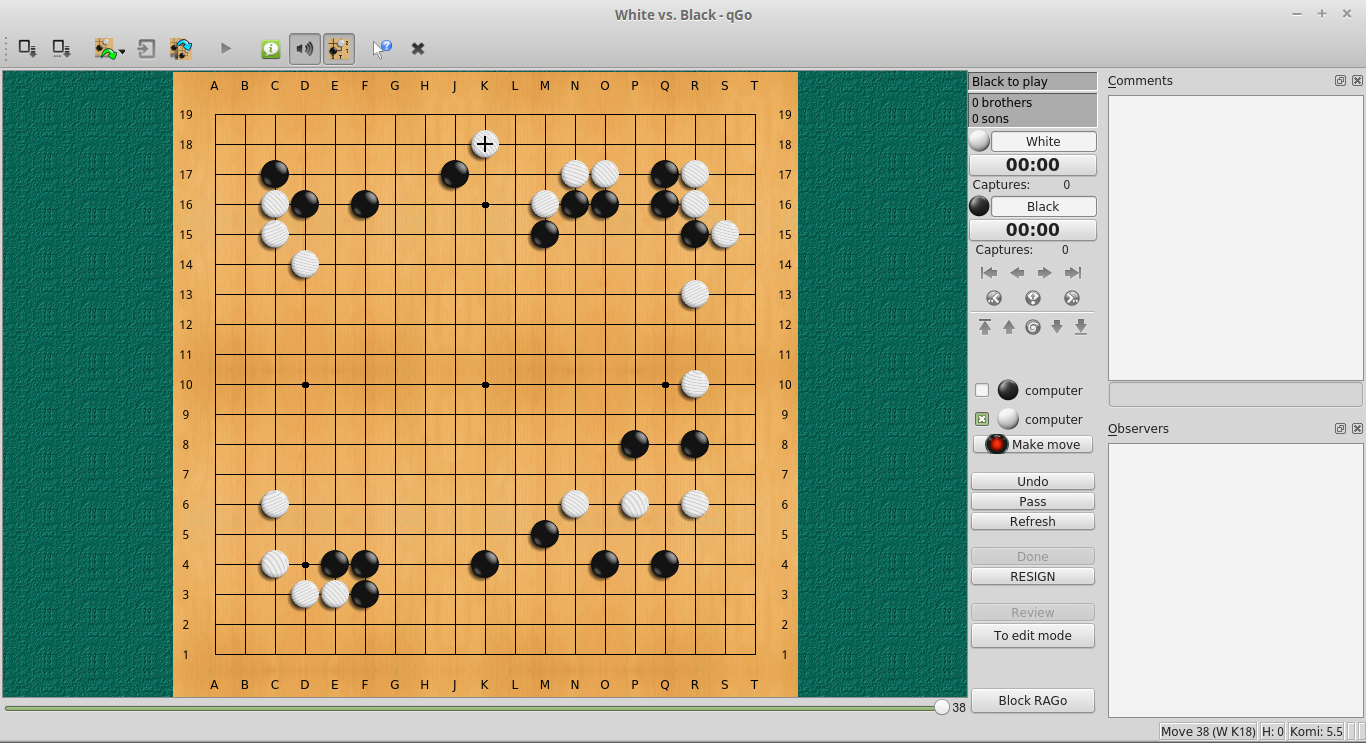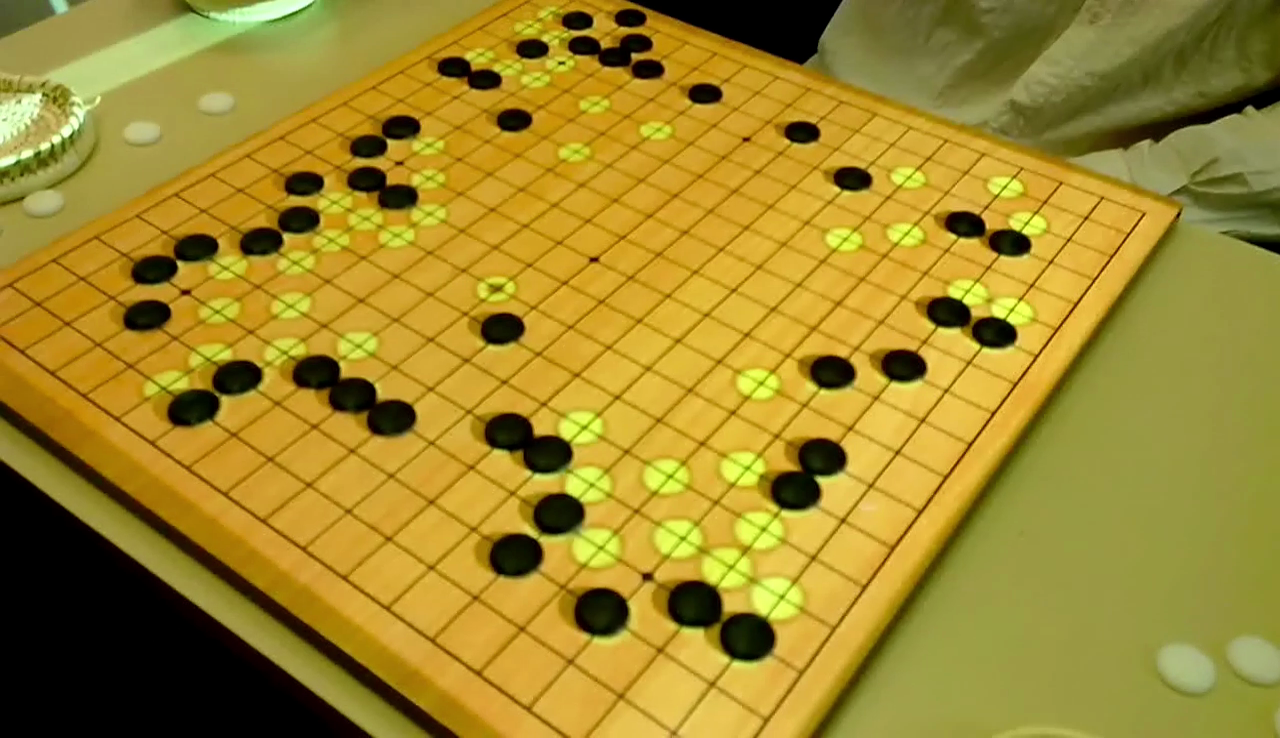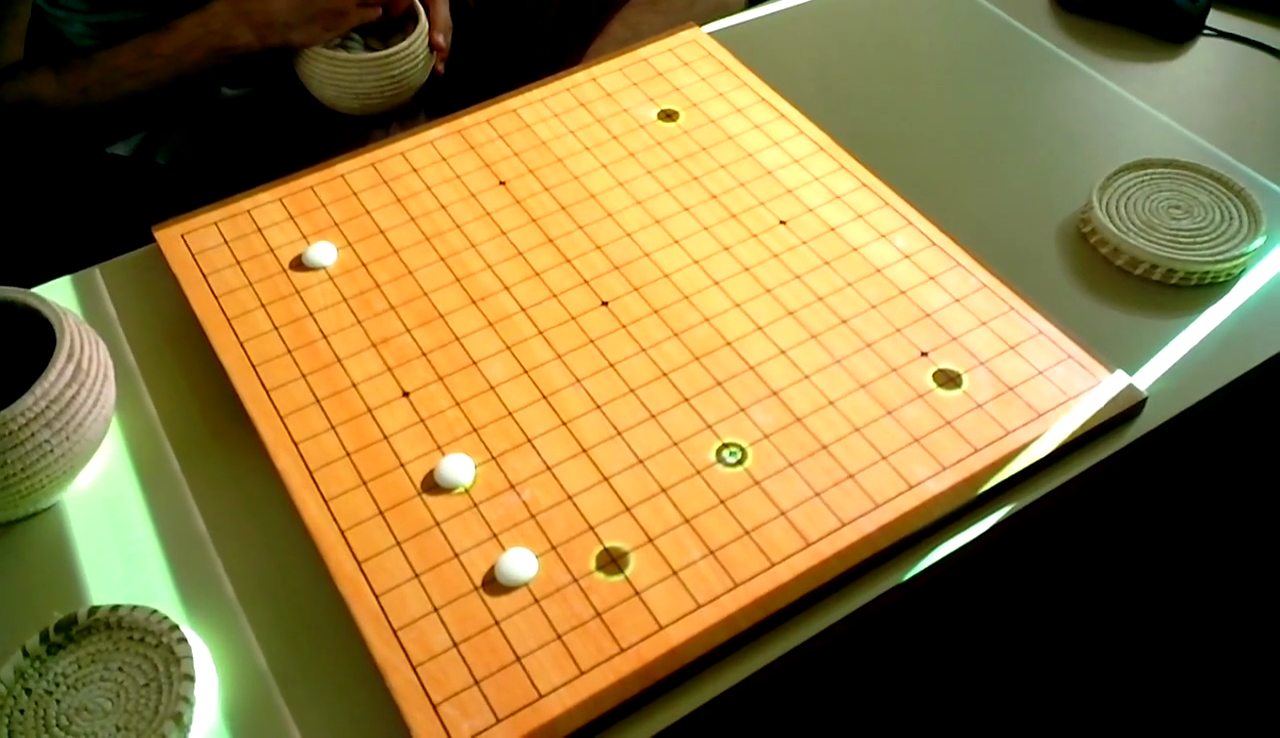RA-Go
| Name: | RA-Go |  |
| Contributor: | Etienne Peillard | |
| Start: | 2014-01-19 | |
| Organisation: | ||
| Edition: | 2018 |
Project Description
RA-Go is an Augmented Reality Go Interface. With a camera and a projector, this application allows a local player to play on a real board while playing against an online opponent. Their off-site opponent (this can be a player on an online server or a computer) has his or her moves projected on the board.
Please have a look at two video examples on YouTube:
- Human vs computer in AR: https://youtu.be/hOftKh_sLeg
- Re-playing a recorded game: https://youtu.be/r0g98i_bvpA
Aim of the Project
The main goal is to allow Go players to play against their online opponents through a natural interface: on a real life go board. Many Go players have experienced the differences between playing on a computer and on a real board. Some of them even report playing differently acording to the interface used.
RA-Go aims to provide Go players with an easy interface to directly play Go online, on their own real board.
Location
Clubs, tournaments.
Timeline
- Early 2015: Beginning as a student project at École Centrale de Nantes (French engineering school).
- June 2015: First public presentation at local Piriac Go Tournament.
- 2016: Several improvements and presentations in Go clubs.
- 9-13 October 2017: Demonstration presented at the 16th IEEE International Symposium on Mixed and Augmented Reality (ISMAR) (leading international academic conference in the fields of Augmented Reality and Mixed Reality).
Results
Since this proposal is a software human-machine interface, its main result is its hability to provide a fluent interaction for Go players.
Thus, if the project succeeds to match its accessibility goals, the application could be used by everyone.
Another side result is the potential use of the camera detection side to record and broadcast live games on online servers during tournaments.
Means
Hardware needed: camera, projector (ordinary devices, no specific needs).
Software side: C++, Qt, OpenCV, CMake, Github.
The computer interface is based on qGo.
Human Resources
Etienne Peillard: project lead, software development.
Myriam Servières & Jean-Marie Normand: project supervision.
Financial Resources
Mainly own budget. Testing hardware partly provided by the École Centrale de Nantes.
Exposure
Intially provided for the Go players' community, the association of Go with a leading technology as Augmented Reality acts as an amplifier. This project brings Go in unusual places like leading technologies symposiums.
Perspective
Our current main goal is to simplify the access to this sofware in order to make it easily usable during local tournaments.
On a technical point of view, some issues can still be improved, in particular the capture of stones and the userinterface.
Wishes
Every developing contribution is welcome. See our GitHub above.



